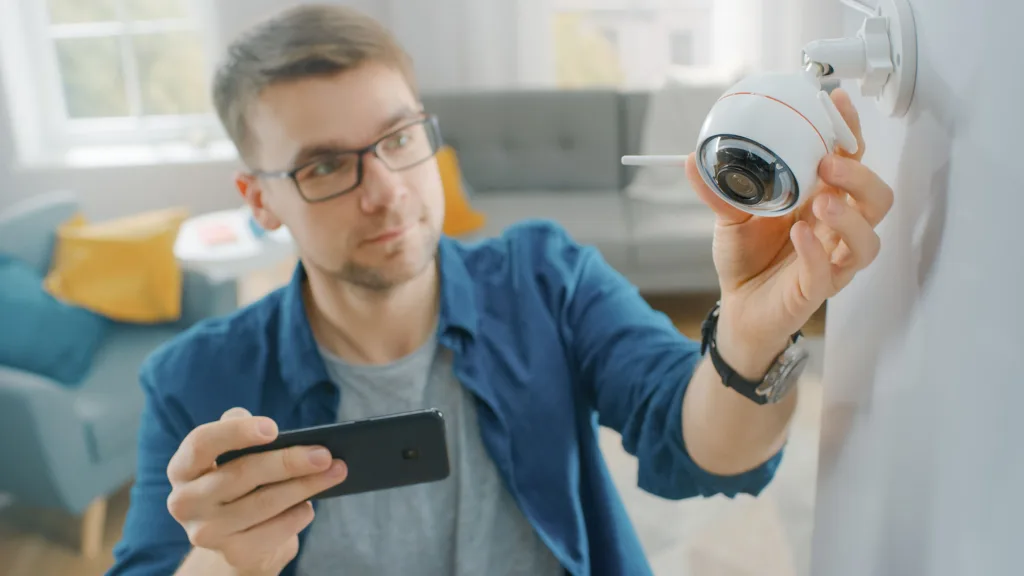A security system is only as reliable as its electrical setup. Power failures, wiring faults, and connection issues can all compromise the effectiveness of CCTV cameras, alarms, and smart security devices. When these problems arise, they can leave properties vulnerable, often without immediate warning.
Understanding the most common electrical faults in security systems is essential for ensuring continued protection. Whether it’s a camera that suddenly stops recording, an alarm that won’t arm, or a motion sensor that triggers false alerts, most issues have straightforward solutions. In this guide, we’ll explore the most frequent electrical problems affecting security systems and provide practical steps to fix them.
Common Electrical Issues in Security Systems
Power Supply Problems
A stable power supply is the backbone of any security system. Without it, cameras, alarms, and smart locks can fail unexpectedly.
Power Outages
Sudden power cuts can disable security systems entirely. To prevent this:
- Install an Uninterruptible Power Supply (UPS): A UPS keeps the system running during short outages.
- Use backup batteries: Many modern security devices support battery backup, ensuring continued operation.
- Check circuit breakers: A tripped breaker can cut power to cameras or alarms, requiring a simple reset.
Low Battery Issues
Wireless security devices rely on batteries, and when they weaken, performance drops. Signs of a low battery include delayed responses and offline notifications. To avoid this:
- Regularly replace batteries based on manufacturer recommendations.
- Use high-quality rechargeable batteries for longer life.
- Set up alerts for low battery warnings.
Faulty Wiring
Wiring issues can cause intermittent power loss, camera flickering, or complete failure. Common causes include:
- Loose connections: Check terminal blocks and connectors for signs of wear.
- Damaged cables: Inspect cables for frayed or exposed wires.
- Incorrect voltage: Ensure power supplies match the required voltage of your devices.
For outdoor security systems, proper wiring is crucial to prevent exposure-related failures. Read more about enhancing home security with outdoor lighting to ensure your setup is both secure and electrically sound.
Connection Failures and Signal Issues
Even if power is stable, poor connectivity can render a security system ineffective.
Loose Cables
A disconnected cable can cut video feeds or disable alarm triggers. Always:
- Securely fasten cables with proper strain reliefs.
- Check plug connections, especially on older installations.
Wi-Fi and Network Problems
Modern security systems depend on internet connectivity, but Wi-Fi failures can cause:
- CCTV cameras going offline.
- Delayed or missing notifications from alarm systems.
- Unresponsive smart locks or video doorbells.
To resolve this:
- Place security devices within a strong Wi-Fi range.
- Use Ethernet connections for stability.
- Regularly update router firmware.
Interference from Other Devices
Microwaves, cordless phones, and Bluetooth devices can disrupt security system signals. To minimise interference:
- Use a dedicated Wi-Fi channel for security devices.
- Keep security equipment away from electronic clutter.

Camera and Sensor Malfunctions
Security cameras and motion sensors are critical components, but they often experience issues.
Blurry or Distorted Images
If CCTV footage appears unclear:
- Clean lenses with a microfibre cloth.
- Adjust focus settings.
- Ensure proper lighting for night vision.
No Video Feed or Blank Screen
If a camera shows a black screen or no signal:
- Check for power and cable connections.
- Restart the system to refresh settings.
- Update firmware to fix software bugs.
False Alarms from Motion Sensors
Sensors that activate unnecessarily can be frustrating. Causes include:
- High sensitivity settings—adjust if needed.
- Objects moving in the detection range (e.g., tree branches, pets).
- Dirt or insects on the sensor lens—cleaning can solve this issue.
System Software and Configuration Issues
Even with stable power and connections, security systems may experience software-related problems.
Firmware and Software Updates
Keeping security system software up to date ensures bug fixes and new security features. Outdated firmware can lead to:
- Unreliable motion detection.
- Delayed alerts or missing recordings.
- Vulnerabilities that hackers can exploit.
Always enable automatic updates where possible.
Incorrect System Settings
If your alarm or camera isn’t functioning as expected, review:
- Motion sensitivity settings.
- Recording schedules.
- Notification preferences.
Resetting the System
When a security device becomes unresponsive, a reset can restore function. Options include:
- Soft reset: Rebooting the system without erasing settings.
- Factory reset: Restoring default settings, useful for troubleshooting persistent faults.
For expert CCTV and doorbell installation, visit our security services page.
Electrical Safety and Compliance for Security Systems
Security systems must comply with UK electrical regulations for safe operation. The BS 7671 Wiring Regulations set the standard for all electrical installations. Ensuring compliance helps:
- Reduce fire risks.
- Prevent electric shocks.
- Maintain legal standards for insurance purposes.
For official UK electrical guidelines, refer to the Electrical Safety First website.
FAQs
1. Why does my CCTV keep losing power?
This could be due to loose wiring, a faulty power adapter, or an overloaded circuit. Check cable connections and ensure the power supply matches the camera’s voltage requirements.
2. How often should I check my security system’s wiring?
It’s recommended to inspect wiring at least once a year to identify wear, corrosion, or damage that could impact performance.
3. What should I do if my alarm system won’t turn off?
Try disarming it using the keypad or mobile app. If that fails, check for low batteries or faulty sensors. As a last resort, power down the system and consult a professional.
Conclusion
Electrical faults can significantly impact security system performance, from power failures to signal disruptions and software glitches. Regular maintenance, secure wiring, and compliance with UK regulations are crucial for keeping security systems operational.
If you’re experiencing persistent electrical issues, it’s best to seek expert help. Visit Wave Electrical Solutions for professional security system installation and troubleshooting.










